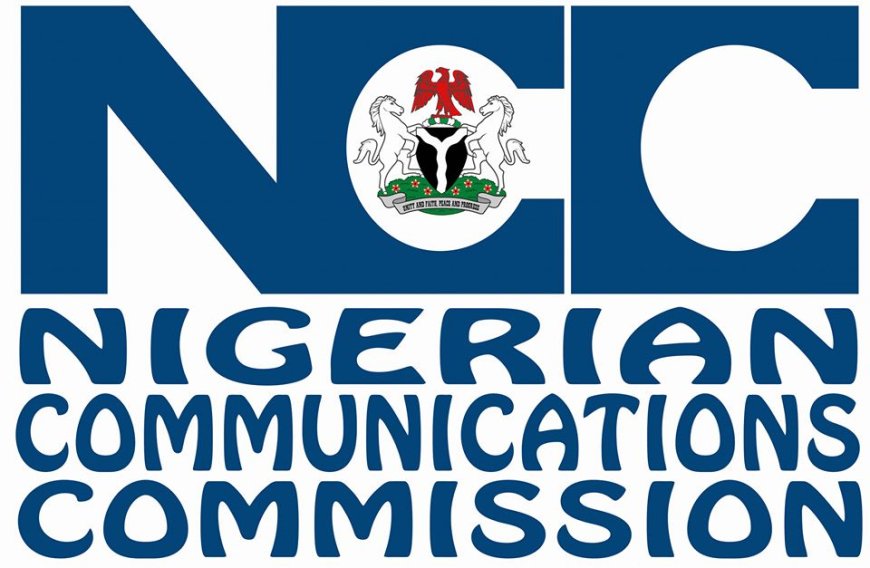Dr. Aminu Maida Harps On Better Ways of improving coordination, synergy among key stakeholders to achieve more beneficial
Dr. Aminu Maida Harps On Better Ways of improving coordination, synergy among key stakeholders to achieve more beneficial

The Executive Vice Chairman (EVC) and Chief Executive Officer (CEO) of The Nigerian Communications
Commission (NCC) has harped on need for better ways of improving coordination and synergy among key stakeholders to achieve more beneficial results in Nigeria
The EVC stated this during the 2024 edition of annual workshop for judges on legal and regulatory Issues in the Communications Industry, organized by the Nigerian Communications Commission (NCC) in collaboration with the National
Judicial Institute (NJI) themed: “The role of the judiciary in accelerating digital transformation in Nigeria” held on November 2, 2024 at the Sheraton hotel in Lagos
He stated that the need is especially fitting, given the urgency of scaling up digital transformation across Nigeria, as well as the importance placed by the government on improving coordination and synergy among key stakeholders to achieve more beneficial outcomes on its policies.
“I am delighted by this opportunity to forge deeper partnership and understanding between the NCC and the judiciary, with the goal of advancing Nigeria’s digital transformation”
“Over the course of this workshop, subject matter experts will provide valuable insights to further support the judiciary in fulfilling its vital role within our democratic framework, especially as it relates to the evolving landscape of digital technologies and communication practices”
“For my opening remarks, i would like to set the stage by speaking on the role the Commission is playing in the digital transformation of Nigeria by providing the backbone of our connectivity, while emphasizing our commitment to building enduring partnerships across government, including especially with the judiciary”
“Our mandate at the Nigerian Communications Commission, as enshrined in the National Communications Act 2003, is a wide-ranging one that includes the establishment and oversight of a regulatory framework for the Nigerian communications industry, as well as the promotion of efficient, reliable, affordable and easily accessible communications services across the country” Maida stated.
He said that this mandate means that we play an integral role in Nigeria’s transition to a truly digital economy while an important aspect of this role involves facilitating the deployment and safeguarding of telecommunication infrastructure which is essentially the backbone upon which digital services are delivered across various sectors of the economy.
According him, you will agree with me that we cannot guarantee a truly digital economy without being able to adequately protect this telecommunication infrastructure that underpins the digital economy.
“I am aware, as you all are, of the extent to which the judiciary today depends on digital tools and technologies to carry out its functions. Much of the work that you do as Judges has been transformed over time by the introduction of technology, commendably improving the pace and quality of the delivery of justice in Nigeria”
“So, clearly, no sector of national life is left out of the digital transformation conversation and it impacts all of us”
“Increasingly over the years, telecommunication infrastructure has suffered from disruptions due extensive damage from vandalism and theft, fiber cuts by construction companies to mention a few, and even restricted access that prevents operators from servicing critical infrastructure”
He noted that the industry has long called for special protections to be accorded to these assets to ensure continuous connectivity and reliable communication services.
Maida further stated that drawing from the powers granted under the Cybercrimes Act of 2024 to designate what may be characterized as critical national information infrastructure, the President Bola Ahmed Tinubu, in July 2024, signed a Presidential Order that designates all telecommunications infrastructure as critical national information infrastructure, adding that this pivotal advancement for our industry was achieved through the NCC’s proactive advocacy and strategic collaboration with key stakeholders, including the Office of the National Security Adviser (ONSA) and the Federal Ministry of Communications and Digital Economy.
He added that with this Presidential Order, Nigeria now has a comprehensive policy framework to protect vital telecommunication assets from base stations and data centers to fiber optic cables and this framework strengthens our ability to decisively confront issues such as vandalism, illegal tampering, and preventing access to communications infrastructure, holding violators accountable to deter future offenses.
“Under this Order, individuals, organizations, or even government agencies are prohibited from sealing, removing, or damaging telecommunications infrastructure without a lawful court order”
“We anticipate that the courts may occasionally receive requests for orders to grant exceptions to the protections afforded to these Critical National Information Infrastructures” “During this workshop, we aim to provide insights that will support judicial discretion in evaluating such requests”
However, the Office of the National Security Adviser, which plays a central role in coordinating the operationalization of the Presidential Order, has already begun stakeholder consultations and meetings to facilitate immediate implementation and it is likely that, in the near future, vandals, thieves, and others who breach this Order’s provisions will be brought before your courts" he said






















